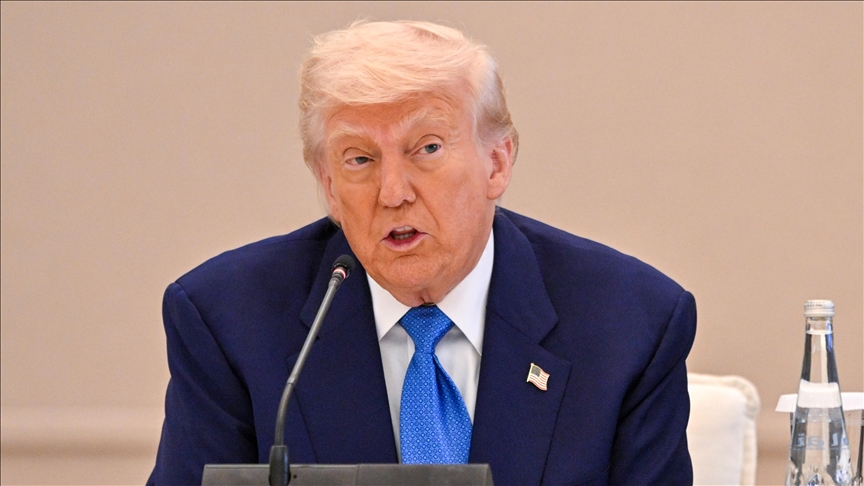Trump says Iran has received US nuclear proposal
'They have a proposal, but more importantly, they know they have to move quickly or something bad is going to happen,' says US president

ISTANBUL
US President Donald Trump confirmed Friday that Iran has received a nuclear deal from the US, warning that “something bad” will happen if they don’t act on it fast.
Returning to Washington after a Gulf tour, Trump told reporters aboard Air Force One that the US has given Iran a nuclear deal proposal, saying: “They have a proposal, but more importantly, they know they have to move quickly or something bad is going to happen.”
Asked if he was sending out a call for Putin to resolve the Russia-Ukraine armed conflict, Trump said: “I may. We have to meet. He and I will meet. I think we'll solve it. Or maybe not, but at least we'll know. And if we don't solve it, it'll be very interesting.”
Trump also called the recent ceasefire between India and Pakistan a big success following days of intense fighting between the two.
“What happened with India and Pakistan ... that was a big success. If you would have seen the level of anger between the two, that was not a good thing,” he said.
White South African 'refugees'
Reporters also asked Trump about the fairness of white Afrikaners coming from South Africa as refugees into the US, while many seeking refuge are left stranded across the world. Trump claimed the Afikaners are being treated “brutally.”
“If I see people in distress, I don't care what color, what they look like, what anything, their size, their height, their eyes. I don't care. But I think that from all evidence, the farmers in South Africa are being treated brutally and it's been reported and nobody wants to cover it. But they happen to be white and if they were black, I'd do the exact same thing,” he said.
During Trump’s first term, controversy erupted over an incident in which he allegedly referred specifically to African countries using a vulgar slur. Trump has denied making the comments, but critics say they see a pattern of racial prejudice in his words and actions.
On the Afrikaners, Trump reiterated that “we treat people very well when we see there's a genocide going on,” using a term more often applied to Palestinians under Israeli oppression than Afrikaners.
“South Africa is out of control and it's been out of control for a long time and the media doesn't report it. But the fact is that we're about saving lives and we're going to do that. So we've made a home and we'll make a home for other people that are treated badly, no matter what their color,” he said.
Afrikaners in South Africa
The US welcomed the first group of 59 Afrikaners from South Africa on Monday as part of the Trump administration's new resettlement initiative.
The decision to resettle Afrikaner “refugees" is part of what the US State Department called a commitment to "protect victims of racial discrimination" in line with Trump's foreign policy, while also trying to turn away or expel people from such countries as Haiti and Afghanistan, where refugees say they would fear for their lives if forced to return.
Afrikaners are a white ethnic minority who are primarily descendants of Dutch, German, and French settlers who arrived at the Cape of Good Hope in 1652 and ruled South Africa during the brutal apartheid regime of racial segregation, which frequently resulted in the violent repression of Black South Africans until 1994.
In a Feb. 7 executive order, Trump directed authorities to begin resettling Afrikaner “refugees,” describing the group as "victims of unjust racial discrimination."
Trump also issued an executive order in February cutting US financial assistance to South Africa, citing concerns about its land expropriation law, its genocide case against Israel at the International Court of Justice, and deepening ties with Iran.
Land reform in South Africa is meant to redress decades of discrimination under apartheid in which Black South Africans were cut off from land ownership and its financial benefits.








